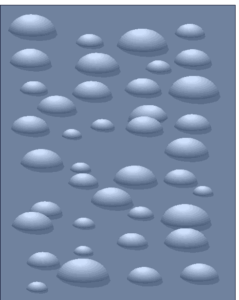Click below to link to:

![]() A theory of the not
A theory of the not
![]() Does the concept of emotional processing commit the fallacy of tautology?
Does the concept of emotional processing commit the fallacy of tautology?
![]() Emotional processing & disorders; cause or effect?
Emotional processing & disorders; cause or effect?
![]() Back to main page
Back to main page
![]() References
References
The question is whether emotional processing constitutes a separate and meaningful area of study from the other ‘big players’ in psychology such as information processing, memory processing and cognitive processing. Does it add anything? Would it be easier to think of emotional processing as simply a sub-section of information processing, memory processing or cognitive processing? Is there something distinctively different about emotional processing?
Cognitive Processing
Cognitive appraisal, cognitive processing and cognitive therapy are important elements in psychology. It would be possible to regard emotional processing as redundant or secondary to cognitive information processing. Couldn’t we say that biases in cognitive appraisal produce emotional disturbance and that redressing these biases, as in Beck’s cognitive therapy produces beneficial change without inferring any emotional processing? However, some emotional stimuli such as injury, rape, death of a relative, physical assault have their own powerful emotional impact independent of cognitive appraisal. Le Doux’s work on memory (1993, 1996, 1998) suggests that for fear stimuli at least, some subcortical registration precedes cortical registration and is processed and stored differently. Cognitive appraisal concepts would be insufficient to cover the totality of emotional processing. As argued in our article Emotional Processing and Panic (Baker, Holloway, Thomas, Thomas & Owen 2004) emotion based therapies such as emotional focussing (Gendlin 1996), emotion focussed therapy (Greenberg & Paivio 1977) and Pennebaker’s narrative therapy (Pennebaker & Seagal 1999) could act as an important adjunct to cognitive therapy.
Joseph LeDoux in ‘A talk with Joseph LeDoux’http://www.edge.org/3rd_culture/ledoux/ledoux_p3.html gives a useful illustration of the need to distinguish emotional and cognitive processing:
‘ Imagine driving down the road and having an accident. You hit your head on the steering wheel and the horn gets stuck on. You’re bleeding and in pain. It’s awful. Sometime later, you hear the sound of a horn. The sound goes to your amygdala and activates your autonomic nervous system (raising your blood pressure and heart rate, making you sweat), tenses your body muscles, releases stress hormones into your blood, and so on. The sound also goes to the temporal lobe system and reminds you of the accident, of who you were with and where you were going. It also reminds you that it was awful. But these are all just facts about the situation. They are memories of the emotional experience rather than emotional memories. In general, one difference between emotional and cognitive processing is that emotional processing often leads to bodily responses, whereas cognitive processing leads to more cognitive processing.”
Memory Processing
Perhaps we might say that memory processing is a better and more overarching viewpoint than emotional processing. Craik and Lockhart’s classic ‘ Levels of processing framework for memory research ‘ (1972) could be said to provide the sort of platform necessary for the processing of emotional memories. Perhaps we should forget about emotional processing and try to extend our knowledge of how different types of memory are stored, including emotional and cognitive memories. But then other relevant questions emerge, such as ‘what types of emotional coping mechanisms impede emotional memory storage’ or ‘how does psychotherapy unblock traumatic emotional memories’ and ‘how does psychological therapy assist in the assimilation and absorption of emotional memories which were once overwhelming?’ Once these questions are contemplated, then emotional processing does seem to offer something distinctive.
It would be impossible to maintain that emotional processing is a completely separate field of study from information, cognitive and memory processing. It shares data, findings and concepts. However, there are distinctive features about emotional processing, particularly as related to psychological therapy and counselling, making it valid as a separate field of study.
Information Processing
This is the type of ‘processing’ most referenced in the psychological literature. Indeed Bucci (1997) refers to ’emotional information processing’ and Foa & Kozak (1986) regard the incorporation of new information into memory structures as the central component of emotional processing. The argument as to whether ’emotional processing’ adds anything to ‘information processing’ is similar to that presented in memory processing. The addition of powerful emotions such as fear, sadness and anger means that the information which needs to be processed is not just neutral or meaningful but has a power, intensity and quality which may interfere with normal information processing. The interface with emotion systems may bring in new dimensions and new mechanisms to information processing. Attitudes to emotions such as dissociation may effectively distort information processing.
The process by which psychological therapy can help to remove blockages becomes relevant too. By the time one considers all these codicils, clauses and exceptions related to emotions, more progress might be gained from a new field called ’emotional processing’ which specialises in the exceptions and blockages inherent in the processing of emotional material.